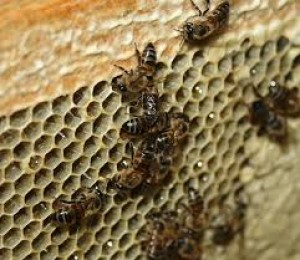
The Probiotic Potential of Lactic Acid Bacteria from Honeybee Stomachs
The fascinating world of probiotics has witnessed significant advancements over recent years, with a particular emphasis on lactic acid bacteria (LAB). These microorganisms have gained considerable attention due to their health-promoting properties, which are beneficial for both humans and animals. One intriguing source of LAB is the honeybee stomach, a unique environment that harbors diverse strains of these bacteria. The research conducted at FRC in collaboration with ADAFSA Abu Dhabi, SRTA-City Egypt, and South Ural State University Russia delves into the probiotic potential of LAB isolated from honeybee stomachs, revealing functional and technological insights that could revolutionize our understanding of probiotics.
Lactic acid bacteria are renowned for their role in fermentation, a process that has been utilized for millennia to enhance the taste, nutritional value, and shelf life of food products. The presence of LAB in fermented foods significantly contributes to their probiotic qualities, making them essential in the development of novel probiotics. Probiotics are defined as live microorganisms that, when consumed in adequate amounts, confer health benefits to the host. The research highlights that LAB are the most widely used probiotics in both medical and food production fields due to their Generally Recognized As Safe (GRAS) status.
To qualify as probiotics, LAB must meet specific criteria. They must be non-pathogenic and non-toxigenic, resilient to external and internal conditions, and capable of withstanding stomach acid and bile salts. Additionally, their adhesive properties are crucial for effective colonization of the host's gastrointestinal tract. The antioxidant activity of LAB is another vital attribute, as it contributes to their functional properties and potential health benefits, including the mitigation of various chronic diseases.
The study focuses on LAB sourced from honeybee stomachs, an environment that offers unique strains with potential probiotic benefits. Honeybees play a crucial role in pollination and the ecosystem, and their gut microbiota is essential for their health and productivity. By isolating LAB from honeybee stomachs, the researchers aim to identify strains with significant probiotic potential that can be harnessed for both human and animal health applications.
The isolated LAB strains from honeybee stomachs exhibited several desirable probiotic properties. They demonstrated strong antioxidant activities, which are crucial for neutralizing free radicals and reducing oxidative stress in the host. This antioxidant activity is linked to the prevention of chronic diseases and the promotion of overall health. Furthermore, the LAB strains showed excellent adhesion properties, essential for colonizing the host's gut and exerting their probiotic effects.
In addition to their functional properties, the technological characteristics of LAB are equally important. The ability of these bacteria to ferment various substrates is a critical factor in their application in food production. The LAB strains from honeybee stomachs displayed robust fermentative capabilities, enhancing the sensory qualities of fermented foods and contributing to their nutritional value. This fermentative ability is pivotal in developing functional foods that offer health benefits beyond basic nutrition.
The study also highlights the potential of honeybee-derived LAB in improving gut health and maintaining microbiota balance. The gut microbiota plays a vital role in the host's overall health, influencing digestion, immune function, and even mental well-being. Probiotics, such as LAB, help maintain a healthy gut microbiota by outcompeting pathogenic bacteria and promoting the growth of beneficial microbes. The unique LAB strains from honeybee stomachs could offer novel solutions for gut health management, particularly in addressing dysbiosis and related health issues.
Moreover, the probiotic potential of LAB from honeybee stomachs extends to animal health, particularly in apiculture. Honeybee colonies face numerous challenges, including diseases and environmental stressors that impact their health and productivity. By introducing beneficial LAB strains into bee diets, it is possible to enhance their gut health, boost their immune system, and improve their resilience against diseases. This probiotic intervention could play a crucial role in sustaining healthy bee populations and supporting the ecosystem services they provide.
The research opens new avenues for exploring the probiotic potential of LAB from unconventional sources like honeybee stomachs. These findings underscore the importance of biodiversity in discovering novel probiotic strains with unique properties that can benefit both humans and animals. The study also emphasizes the need for further research to fully understand the mechanisms underlying the probiotic effects of these LAB strains and their potential applications in various fields.
In conclusion, the isolation and characterization of LAB from honeybee stomachs present exciting opportunities for advancing probiotic research and applications. The unique properties of these LAB strains, including their antioxidant activity, adhesion capabilities, and fermentative abilities, make them promising candidates for developing new probiotic products. Whether in human health, animal health, or food production, the potential of honeybee-derived LAB is vast and warrants further exploration. As we continue to uncover the secrets of these beneficial bacteria, we move closer to harnessing their full potential for enhancing health and well-being. In-depth study can be found at “Shehata, M. G., Masry, S. H. D., Abd El-Aziz, N. M., Ridouane, F. L., Mirza, S. B., & El-Sohaimy, S. A. (2024). Probiotic potential of lactic acid bacteria isolated from honeybees stomach: Functional and technological insights. Annals of Agricultural Sciences, 69, 11-18. https://doi.org/10.1016/j.aoas.2024.06.001”
